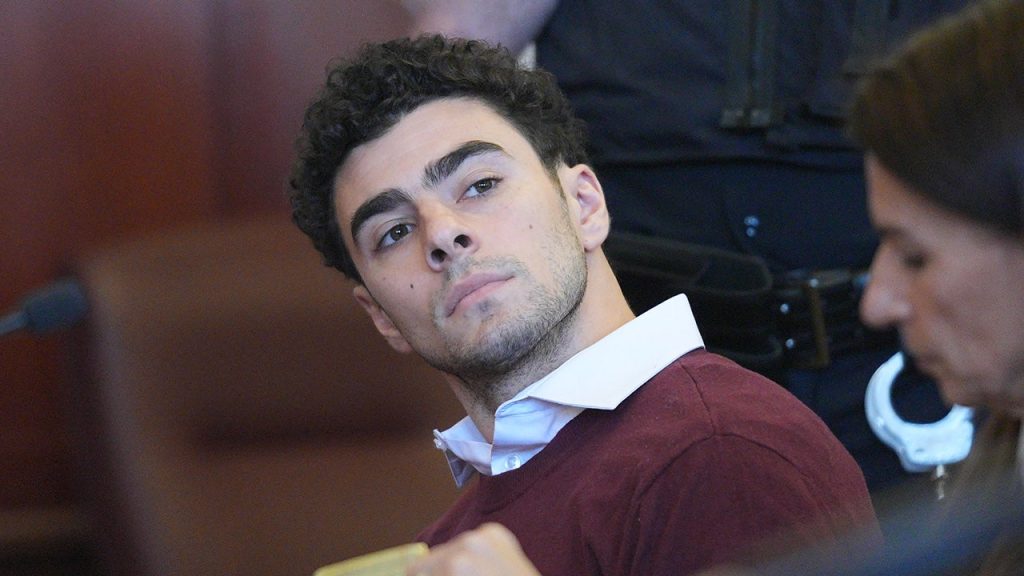Luigi Mangione and the High-Profile Murder Case That Shocked the Nation
The murder of UnitedHealthcare CEO Brian Thompson on December 4, 2024, in Manhattan sent shockwaves across the nation. The suspect, 26-year-old Luigi Mangione, has been charged with first-degree murder in furtherance of an act of terrorism, stalking, and a host of other state and federal charges in both New York and Pennsylvania. The case has garnered widespread attention not only due to the brutality of the crime but also because of the unusual public response to Mangione’s legal defense. Despite the severity of the charges, Mangione has received nearly $300,000 in donations from over 10,000 individuals to fund his criminal defense. This outpouring of support has sparked intense debate, with many questioning the ethics of raising money for someone accused of such a heinous act.
The Controversial Fundraiser and Public Reaction
The fundraiser, organized by the December 4 Legal Committee, a group of 15 volunteers Across the U.S., has been met with both appreciation and outrage. Mangione’s lead defense attorney, Karen Friedman Agnifilo, expressed gratitude on behalf of her client, stating that the funds would be used to mount a robust defense against the multiple charges. However, critics argue that raising money for someone accused of murder is morally reprehensible. Ted Williams, a former Washington, D.C., homicide detective and criminal trial attorney, described the act of donating to Mangione’s defense as "applauding murder." Williams questioned the mental stability of those who would support a murder suspect, calling the act "sick." He emphasized that while the legal principle of "innocent until proven guilty" is important, the evidence against Mangione appears overwhelming, making the public’s support for him deeply troubling.
The Suspect’s Alleged Motives and the Broader Debate
Prosecutors believe that Mangione’s actions were premeditated and politically motivated. They allege that he targeted Thompson to send a message to the healthcare insurance industry, which he seemingly held responsible for widespread suffering. This theory is supported by a manifesto found on Mangione when he was arrested in Pennsylvania, days after the murder. In the manifesto, Mangione reportedly outlined his grievances against the healthcare system and expressed a desire to incite national debates about its failings. While some have interpreted his actions as a twisted form of activism, others view them as nothing short of terrorism. James Dennehy, assistant director of the FBI’s New York field office, condemned Mangione’s alleged actions as a "carefully premeditated and targeted execution," demonstrating a "cavalier attitude towards humanity."
The Defense’s Strategy and Public Support
Despite the damning allegations, Mangione’s supporters argue that his actions, while extreme, were driven by a desire to highlight systemic injustices. The December 4 Legal Committee, which organized the fundraiser, has framed Mangione’s case as a critique of the private health insurance industry, which they claim has "ruined countless lives" by denying access to basic care and burdening families with medical debt. Sam Beard, a spokesperson for the committee, expressed thrill that Mangione is using the donated funds to mount a strong defense, suggesting that his alleged actions resonate with "tens of millions of hard-working Americans" who feel victimized by the healthcare system. This perspective has further polarized public opinion, with some viewing Mangione as a vigilante and others as a symbolic figure representing broader societal frustrations.
Luigi Mangione’s Background and the Complexity of the Case
Mangione’s background adds another layer of complexity to the case. A native of Maryland, he graduated valedictorian from the prestigious Gilman School in Baltimore in 2016 and went on to earn bachelor’s and master’s degrees in computer science from the University of Pennsylvania by 2020. His academic achievements and privileged upbringing have led some to question how someone with such a promising future could allegedly resort to violence. Critics like Ted Williams have pointed out that Mangione’s wealthy family background makes the idea of raising money for his defense even more absurd. "Raising money for him is like applauding murder," Williams said, emphasizing that there are far more deserving causes in the U.S.
The Broader Implications and the Ongoing Debate
The case of Luigi Mangione has sparked a national conversation about justice, activism, and the limits of public sympathy. While some argue that Mangione’s alleged actions, however tragic, have brought attention to critical issues in the healthcare industry, others see his case as a clear example of domestic terrorism. The fact that so many people have donated to his defense fund raises uncomfortable questions about the morality of supporting someone accused of such a serious crime. As the legal proceedings unfold, the outcome of Mangione’s case will not only determine his fate but also reflect the values and priorities of a society grappling with inequality, injustice, and the complexities of human behavior.












